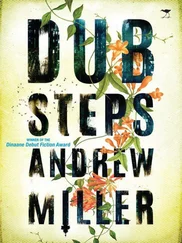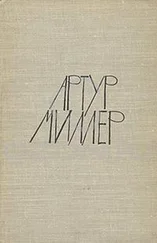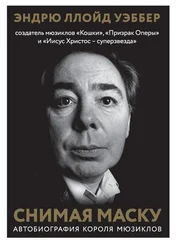What had he expected to find? A smashed glass? An overturned chair? A body? But the room, quarter lit by the setting sun, was quite innocent. No sign of any haste or trouble. No air of menace. Yet far from reassuring him, this calmness, the sheer order of the place, convinced him that something had indeed occurred, and that his unease of the last week, the fear of some unspecified event, some violent alteration to the steady progress of their days together, had at last been realized. On László’s desk the papers of his manuscript were gathered into a neat pile, the pens lined up at the side, the little ashtray emptied and wiped. Even the chair had been slid under the desk, as though no one would ever need to sit there again, as though it were all done with and finished.
Propped against the bottom edge of the computer monitor on his own desk was a blue oblong envelope with his name on it. He stood a moment, looking at it, then went back into the kitchen and touched the china of László’s cup as if he hoped to feel some trace of warmth in it still. Then he washed it, washed the plate and the knife, and put them away in their proper places. There were spits of grease around the gas rings on the cooker. He cleaned the cooker. There were crumbs on the floor beneath the breadboard. He swept the floor, then vacuumed it, and was on the point of filling a bucket with hot water to scrub it when he recognized the folly of such tactics. He left the half-filled bucket in the sink, rolled down the sleeves of his shirt, and went back into the study. It was darker now. He turned on the green-shaded lamp and slit open the envelope with the little Opinel penknife he kept in his desk drawer. Inside the envelope were two sheets of paper written over on both sides in black ink. He could tell from the handwriting that they had been written slowly and were probably not a first draft. He carried them to the window and read them standing up, one hand, the tips of his fingers, pressing on the surface of László’s desk.
My dearest Kurt,
I am writing to you in some confusion, though also with a clear sense that what I am doing now is necessary, and that could I possibly lay it all before you in the right way you would approve. You will be angry that I have not shared my plans with you, but there were reasons for this that have nothing to do with you. It has no significance. I would trust you with my life and without a moment’s hesitation. There is no one in the world I can be surer of.
I will be away for some days – I do not know precisely how long – performing a small task that is, I hope, a valuable one. The task is political and covert, though not dangerous, and will require from me no very particular talents. Of course, in an affair like this there is always the old problem of intentions and consequences – meaning to do good we do harm and must take responsibility for that harm – but the group in whose interests I am undertaking this journey (into the labyrinth?) have a just and urgent cause, and for far too long I have left it to others to act in the world. I have made futility into a fetish, as though nothing effective could ever be done, all endeavour doomed to end in confusion, treachery or failure, an evasion with its origin in that episode from my past of which you already know something, the broad strokes if not the detail. That day long ago when, as a result of my weakness, a young man lost his life. Since then I have never been entirely free of the guilt and sorrow that hour brought to me, and while it may be precisely such difficulties that made a writer of me (the most confessional of the arts) as a man I have been weakened in ways I can no longer accept. I cannot – to borrow an image from Jules Supervielle – go into the garden and just see the garden. There is always an extra shadow. Always, in any silence, the shout that I did not answer.
Do you think, my friend, that it is possible to put things right? To make amends? To atone? The Ancients believed in it. Not just the possibility but the necessity. Or is this some dementia I am suffering from? After all, I cannot run the film backwards. I cannot be eighteen again. So who can be saved? What can be rescued?
No doubt there is something grossly selfish in all of this, but will you believe me if I say it is also us I want to save?
You and I were never the people to spend hours gazing moodily into each other’s eyes. We are sparing with our endearments – it is how we manage our lives together. But let me say this, so that whatever happens, whatever our futures might be, you will have at least some poor idea of how I value you. You have given me ten or fifteen of the happiest moments of my existence. Knowing you, I can never lose faith in life, nor in the sheer generosity of another’s heart. I carry the memory of your face with me now like an icon to be adored secretly among strangers. Trust in this. Destroy this letter. Forgive me.
L.
When he got to the end he read it through again, then tore it methodically into small pieces, placed the pieces in the ashtray, and using the same lighter László had used a week earlier to ignite the sambuca, he burned them and crushed the embers into a black dust. Then he moved the lamp closer to the window and leaned towards the glass, looking south to the boulevard Edgar Quinet, and the walls of the cemetery where Sartre and de Beauvoir and the glorious Beckett lay.
At six o’clock, Larry stood at the kitchen stove, labouring over the evening meal. A pillar of steam broke across the red of his face as he prodded the rice with a wooden fork, frowning at it like a soothsayer investigating the liver of a slaughtered ram for those striations and whorls that would betray the future to him. Beside the hob, propped against a mostly empty bottle of white wine, was one of Alice’s cookbooks, an Elizabeth David, open at a recipe for risotto, though it had, of course, been necessary for him to find alternatives to the chicken stock and the beef marrow and the diced ham, and everything that would, in his opinion, have given the meal flavour and nutritional profit, but which his wife – ‘I don’t eat dead animals, Larry’ – would have refused to eat, to touch even.
He had collected her the previous morning – Alec’s old car again – from Terminal 4 at Heathrow, where she had come out a little dazed and fragile in the wake of a sports team of blazered young men with crew cuts, who were joshing each other loudly despite the early hour. When he had called her name it had taken her a moment to locate him, and as she searched the faces at the barrier her expression was unmistakably a look of distress, as though this were not an orderly airport in an orderly country, but somewhere more fluid and dangerous, and still half asleep, time in a tangle in her head, a voice from the crowd had marked her out. But then she had seen Ella and let out a joyful ‘Hi!’, and for a while they had been like any other family there, grinning hard and trading hugs. Only a very practised eye could have seen it for what it was: a tenderness shot through with shared and private fears. She was upstairs now, in the room above his head, tending to his mother.
He checked the recipe and ladled more stock on to the rice. He was wearing one of Alice’s blue canvas aprons and handling the food with a certain alcoholic swagger that made him wonder whether he might not be very suitable for some kind of low-budget cookery programme. Catchpole in the kitchen: classic English cuisine from steak and kidney to spotted dick with television’s best-loved medic. There appeared to be an inexhaustible demand for colourful types who could chatter to camera while dicing peppers or flipping Thai prawns in a wok. Set against his present difficulties, this didn’t seem such an outlandish idea, and while being a TV chef was not, he thought, a wholly proper way to earn a living, it was preferable to what awaited him in the chill of the garage at San Fernando. It would certainly be the better option when KDBS organized the next Take Your Daughter to Work Day.
Читать дальше












